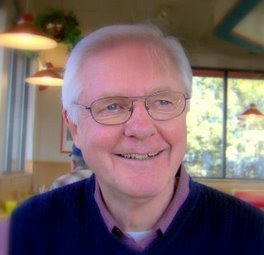
"Truly grateful people can’t be stopped. They bubble and overflow, refreshing others. Their habitual gratitude serves as a springboard to give a reason for the bouyant hope bouncing within them. They attract those who are stuck in the cares of this world, and woo them to the eternal Good," Vaughn
Ungratefulness can become a heart-hardening habit. First comes complaining, then resentment, then feeling victimized or entitled to things that we’re just not getting. This can lead to a mindset of covetousness that opens the floodgates to all kinds of sin.
Obstacles blocking a grateful spirit:
1. Lack of intimacy with God. Not experiencing His grace, mercy and forgiveness.
2. Carrying guilt from unrepented sin.
3. Self and circumstances focus rather than a God focus.
Ungratefulness can become a heart-hardening habit. First comes complaining, then resentment, then feeling victimized or entitled to things that we’re just not getting. This can lead to a mindset of covetousness that opens the floodgates to all kinds of sin.
Obstacles blocking a grateful spirit:
1. Lack of intimacy with God. Not experiencing His grace, mercy and forgiveness.
2. Carrying guilt from unrepented sin.
3. Self and circumstances focus rather than a God focus.
4. Pride / entitlement. The world owes me.
The biggest obstacle to gratitude is refusing to admit that apart from Christ, we can do nothing.
So how do we slough off pride and all those layers of sin and self-sufficiency that block us from thanking and praising God? We can’t. We need to be stripped by ANOTHER.
Cooperation with God as we face adversities, sounding something like: "God, I don't like what you are allowing into my life at the present but I trust you that out of this situation will come good."
Vaughn suggest four things that we an do to practice the presence of gratitude.
1. Remember. 2. Forget. 3.Look up to God. 4. look around to His people.
Remember our deliverance. Our deliverer. Tools to help us remember: journaling, stones of remembrance, jewelry, photos, music, eucharist (means to be thankful), smell. The more senses that are involved, the more fully the memory is encoded in our brains.
2. Forget: our sins, our shame, our successes. We get lost in cheap snares and doubts when we look to ourselves, preoccupied by our sin, our shame, our success as if it were all about us.
3. Look up to the grandeur of God. – even in tragedy.
4. Look around and connect with the fellowship of friends. Satan wants us isolated so he can gain footholds.
Gratitude is like getting accustomed to seeing in the dark. When entering a dark room, sight is very limited. As the eyes take on the changes to view in the dark, sight becomes more of a reality. Same with gratitude. The more I thank, the more I see for which to be thankful.
1. Remember. 2. Forget. 3.Look up to God. 4. look around to His people.
Remember our deliverance. Our deliverer. Tools to help us remember: journaling, stones of remembrance, jewelry, photos, music, eucharist (means to be thankful), smell. The more senses that are involved, the more fully the memory is encoded in our brains.
2. Forget: our sins, our shame, our successes. We get lost in cheap snares and doubts when we look to ourselves, preoccupied by our sin, our shame, our success as if it were all about us.
3. Look up to the grandeur of God. – even in tragedy.
4. Look around and connect with the fellowship of friends. Satan wants us isolated so he can gain footholds.
Gratitude is like getting accustomed to seeing in the dark. When entering a dark room, sight is very limited. As the eyes take on the changes to view in the dark, sight becomes more of a reality. Same with gratitude. The more I thank, the more I see for which to be thankful.
"Gratitude unleashes the freedom to live content in the moment, rather than being anxious about the future or regretting the past."








